Late Results for Saturday, February 25
Bobsled: In the men's four-man bobsled, the Brazilians came last. Yes, while Jamaica may not have qualified a team, Brazil did -- presumably through continental qualification (see previous entry for bobsled qualifying rules). Anyway, the boys from Brazil are Ricardo Raschini, 38, Marcio Silva, 25, Claudinei Quireno, 35, and Edson Bindilatti, 26; their time after three runs was 2:58.94, or 5.32 seconds off the pace at that point. Teams below 20th place didn't get a fourth run. There was one DNS.
Short Track: Three finals today, so three attempts at divining the last-place finisher in an event where time matters less than place, and there's heats.


So, in the men's 500-metre heats on Wednesday, 21-year-old Anthony Lobello of the USA had the slowest non-advancing time: 1:13.722. Most other competitors had races in the 42-44 second range, so a fall is likely here. In the women's 1,000-metre heats, also on Wednesday, Latvian skater Evita Krievāne had the slowest non-advancing time: 1:39.986. Her time, on the other hand, was only a few seconds off the pace.
The men's 5,000-metre relay, on the other hand, was easy to figure out: the German team of Thomas Bauer, 21, Andre Hartwig, 22, Arian Nachbar, 29, and Sebastian Praus, 25, finished last (er, second) in the B final.
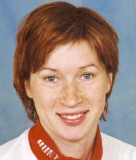 Speed Skating: One event left -- the women's 5,000-metre, in which Katarzyna Wójcicka, 25, skating for Poland, finished 16th. Her time was 7:28.09, about 29 seconds off the pace. It's worth mentioning that this is Wójcicka's fourth event: she finished 10th in the 3,000-metre, eighth in the 1,000-metre and 11th in the 1,500-metre races. Don't for a moment think that last-place finishers are always in the back of the field; 'tain't always so.
Speed Skating: One event left -- the women's 5,000-metre, in which Katarzyna Wójcicka, 25, skating for Poland, finished 16th. Her time was 7:28.09, about 29 seconds off the pace. It's worth mentioning that this is Wójcicka's fourth event: she finished 10th in the 3,000-metre, eighth in the 1,000-metre and 11th in the 1,500-metre races. Don't for a moment think that last-place finishers are always in the back of the field; 'tain't always so.Standings to date: With only one event still to report its last-place finisher -- the men's 50-km cross-country ski race -- we're almost there. Japan inches into second place, with as many last-place finishes as Romania but more than three times the athletes. Poland and Latvia move up the top 10, from eighth and ninth to sixth and seventh, respectively. Brazil, Germany and the USA add their second last-place finishes and move into the top 20.
Labels: alpine skiing, bobsled, brazil, germany, japan, poland, short track, speed skating, torino 2006, usa
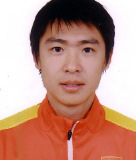 Speed Skating: In the
Speed Skating: In the 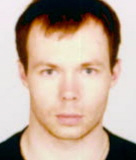 Freestyle Skiing: In
Freestyle Skiing: In 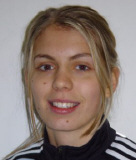 Short Track Speed Skating: The
Short Track Speed Skating: The  Luge: An extremely slow third run put
Luge: An extremely slow third run put 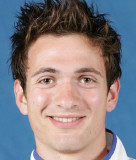 Short Track Speed Skating is a little trickier to report on because it's based on heats rather than times: it frequently occurs that a winning time in one heat is slower than the slowest time in another. Your time, in other words, doesn't matter insofar as the standings are concerned. So I'm making an executive decision to post the slowest time overall, whether it comes in the heats, semis or finals. (If nothing else, they record world-record times in this sport, don't they?) Anyway, that's a long enough prologue to some actual results, to wit, those from the men's 1,500-metre individual event (results:
Short Track Speed Skating is a little trickier to report on because it's based on heats rather than times: it frequently occurs that a winning time in one heat is slower than the slowest time in another. Your time, in other words, doesn't matter insofar as the standings are concerned. So I'm making an executive decision to post the slowest time overall, whether it comes in the heats, semis or finals. (If nothing else, they record world-record times in this sport, don't they?) Anyway, that's a long enough prologue to some actual results, to wit, those from the men's 1,500-metre individual event (results: 
